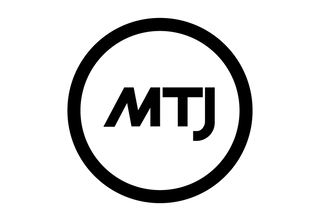SCIENCE PILLS
Anti aging or anti photoaging?
We are well acquainted with the word anti-aging, a very broad and general term by which we mean to place all processes designed to prevent, counteract and delay our physiological aging process (Chrono aging).
By the term photoaging we mean all those changes, affecting the skin and its structures, induced by the sun and UV rays.
When the skin is over-exposed to UV rays, it can suffer the damaging effects, the intensity of which changes in relation to the dose of UV received and the sensitivity of the subject. The damaging effects can be acute (or immediate), or chronic.
LET'S GET TO THE BOTTOM OF IT
The effects of sun exposure
The immediate effect of sun exposure is sunburn and erythema, an inflammatory reaction characterized by vasodilation and increased skin permeability.
This reaction results in redness, pain and sometimes blistering to the detachment of the upper skin layers.
The chronic effects of prolonged sun exposure, on the other hand, are premature aging given by the alteration of skin cellular structures, dryness, desquamation, alteration of pigmentation, all the way to neoplastic skin diseases.
THE PROTAGONISTS.
UVB - GRAPE - BLUE LIGHT
UVB radiation reaches the earth in relatively low amounts (about 0.5 percent of the solar spectral irradiance at ground level, integrated in the range 290-2500 nm) and is highly energetic.
Seventy percent of UVB radiation reaching the skin is absorbed by the stratum corneum, 20 percent reaches the viable epidermis, and only 10 percent penetrates the upper part of the dermis.
UVA radiation has lower energy but is at least 20 times more abundant. UVA radiation is partly absorbed by the epidermis, but 20-30% reaches the deep dermis.
Ninety-five percent of the UV radiation that reaches the ground level is.
UVA 1.
UVB - UVA radiation and the Blue Light
Another interesting feature of UVA radiation is that it passes through glass, while UVB radiation is almost entirely absorbed.
Therefore, high doses of UVA can be received even in indoor conditions while erythemal UVB radiation is filtered out.
UVB radiation therefore has a greater action on the epidermis than UVA radiation, which can also affect the dermis.
This is one reason why UVA radiation is now considered an important factor in the process of skin photoaging, but it also participates in photocarcinogenesis.
Blue light (380-500 nm) causes the formation of free radicals and thus can promote premature skin aging.
Blue light can play a role in photoaging in both light and darker skin types, so people with darker skin also need sunscreen.
This radiation can penetrate deeper to directly affect cells in the epidermis, dermis and subcutis contributing to photoaging.
LET'S GET TO THE BOTTOM OF IT
Photo-oxidative processes
Unlike UVB rays, UVA rays, due to their high penetration properties, can reach deeper parts of the skin and affect the dermal compartment.
UVA radiation actually induces major alterations in the dermal compartment through the generation of ROS (reactive oxygen forms).
Fibroblasts, the supporting structure of the dermis, are attacked by ROS, which cause their degradation. This results in the formation of early wrinkles in the skin.
OXIDIZING AGENTS
How ROS act
These are unstable and highly reactive oxygen radicals that tend to donate oxygen atoms to other substances or compounds.
When the oxygen atom (or free radical) is given up, the substance receiving it is oxidized, its structure is changed, and, from then on, a series of chemical reactions ensue, resulting in its damage and altered functionality.
At the skin level, the structures that can be affected by ROS are lipids and cell membrane enzymes, DNA and RNA, but this oxidation process also underlies several systemic diseases.
Oxidation and photoaging
The initiation of photo-oxidative processes, by UV rays, occurs with the activation, at the level of the epidermis and dermis, of particular enzymes that are put "on alert" and activated in cellular defense.
Subsequently, ROS diffuse to the level of dermis, epidermis and stratum corneum, going on to oxidize cellular lipids, and this results in the reduction of antioxidant systems.
ROS, once they reach the level of DNA, change its structure, leading to cell toxicity and premature death.
TO SUMMARIZE.
The visible effects on the skin
The damaging effects of the sun on the skin, at whatever wavelength it irradiates us, if not well protected by appropriate sunscreens and physical shields (e.g., clothing) is damage to cellular structures both at the superficial level (epidermis) and in the deep dermis.
This damage is done by the generation of ROS, oxygen radical species, which affect cellular structures in various ways altering their structures and causing premature skin aging and skin changes given by the damaged underlying dermal structure.
How to prevent photo aging
It is therefore of paramount importance to protect oneself year-round with seasonally and UV index-appropriate sun protection.
Therefore, use a daily sunscreen with medium spf during winter seasons (SPF 30), and one with higher protection for exposure during warm seasons (SPF 50+).
The use of PROCOSMET's sun lines-with pre-sun exposure products, protective creams and after-sun products-guarantee defense against ROS both through UVA- UVB and Blue Light filters and through natural antioxidant and protective extracts that increase the skin's defenses.



